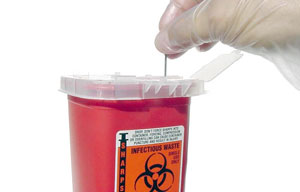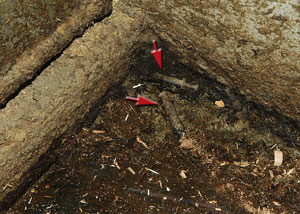Healthy Calf Conference
Follow to stay up-to-date on all Healthy Calf Conference updates. Speaker announcements, sponsorship information, registration announcements, and more.
Safe and responsible use of livestock medicines is a cornerstone of on-farm food safety. It helps keep calves healthy, farmers and farm workers safe and perhaps most importantly, builds and maintains consumer confidence in Ontario-produced veal and dairy products.
Here are a few key things to keep in mind when it comes to good production practices for using medication on-farm safely and responsibly:
Working with a herd veterinarian can be a valuable asset to your farm. This doesn’t mean a vet has to be on-farm every day, but a vet-client-patient relationship means having access to expert advice on management practices, health and production issues. It can also give you access to a wider range of medications to treat health issues as veterinarians are able to issue prescriptions for extra-label treatment options.
Any livestock medication that is used in a manner not described on the label, regardless of whether it is purchased over the counter or from the veterinarian, is considered extra-label and requires a prescription. Extra-label drug use is not permitted in Canada without veterinary supervision.
Make sure you adhere to the proper withdrawal times for all livestock medicines. This is key to ensuring food safety and that calves being sent to market are free of any medication residues. If feeding milk, do not use milk from cows being treated with medication as this may cause residues in the calf. If calves on dairy farms have received treated milk or received any kind of medical treatment, do not ship them until the meat withdrawal period has been met, you may not know their final destination after they leave your farm.
Unsupervised extra label drug use is the most common cause of possible drug residue in food animals so be sure to keep track of all prescriptions and medications used on-farm and review them periodically with your veterinarian. This record-keeping is also important if you are working towards or have achieved certification under an on-farm food safety or quality assurance program.

Always inject in the neck just in front of the shoulder or according to the veterinarian’s directions. It is recommended that you change your needle every 10-15 uses in order to maintain proper injection techniques. However, if the needle becomes bent, dull or contaminated with manure you should use a new needle immediately. Do not straighten or reuse a bent needle. You should clean needles and syringes with hot water between uses. If you use a disinfectant to clean your needles and syringes, rinse them thoroughly before using. However, it is recommended not to use a disinfectant for your needles or syringes if you are using a modified live vaccine.

If you have empty livestock medicine containers, animal health products that have expired or that you will no longer need, or used sharps (medical needles, syringes or medical blades), it is critical that they are stored and/or disposed of properly. Animals should not be treated with expired medications as product stability and potency may be compromised. Proper disposal of unused animal health products and used sharps is also important to help prevent the potential for water contamination, and ensure worker health and safety.
While on-farm, unwanted medicines and sharps should be securely stored and clearly labelled so they do not pose a risk to farm workers or are used inadvertently. These products should never be stored on-farm long term; buried or thrown into manure piles, hay or straw; thrown out with household garbage or recycling; or burned.
There are various options available for proper disposal, although this varies regionally across the province. Some municipal landfills will accept unwanted medicines and sharps, as will some veterinarians. For larger farms, a commercial disposal service may be an option. For more information, visit http://www.omafra.gov.on.ca/english/livestock/animalcare/amr/facts/05-053.htm.
Follow to stay up-to-date on all Healthy Calf Conference updates. Speaker announcements, sponsorship information, registration announcements, and more.
The Codes of Practice are nationally developed guidelines for the care and handling of farm animals. They serve as our national understanding of animal care requirements and recommended practices.